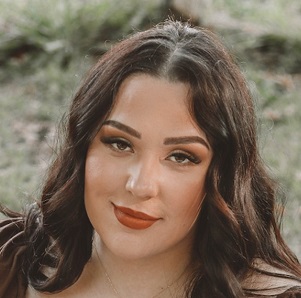
Laura Cauchi
Indigenous Health Scholarship
Western Sydney University, NSW
Doctor of Medicine
Scholarship Awarded 2024
Sponsored by:
Paul and Julia Reid and
Rotary Club of Pambula
Student Profile
My name is Laura Cauchi, and I am a proud mother to three young boys, a Registered Nurse and dedicated Medical student who has a passion for helping others. Growing up I was blessed enough to be raised in Western Sydney where I was emersed in both the Aboriginal and Maori culture which has given me an ongoing appreciation and respect to the connection family has in the provision of holistic healthcare.
How will I contribute to improving Indigenous health as a qualified medical practitioner or health worker?
As a Doctor my goal is to relocate to a rural or remote location where I can provide healthcare to communities which need stable and safe healthcare which embodies principles such as cultural safety, kinship, and connection to land. Furthermore, I wish to pursue training as a rural generalist with a special interest in obstetrics and gynaecology services. In addition to this, I would also like to provide culturally safe end of life care to mob which embodies the traditional beliefs and customary practices to take place in a setting which is comfortable and appropriate for the family and individual involved.
I guess you can say my goals are quite diverse, but to close the gap I believe they need to be diverse to ensure nobody is left behind.
Current Progressive Report
Repeating Year Two was not something I ever anticipated, nor something I initially welcomed. At first, it felt like a setback, a pause in a journey I had worked tirelessly to begin. Over time, however, this year became one of the most formative periods of my medical training and personal life, reshaping not only how I learn, but who I am becoming as a future doctor. Resilience is not taught, it is learnt, and twenty twenty five was the year I really learnt how resilient I am.
Academically, repeating the year allowed me to consolidate foundational knowledge in a way that was not previously possible. With greater insight into the curriculum and expectations, I approached my studies with renewed purpose and discipline. This was reflected in tangible outcomes. I passed previously challenging components and consistently increased my marks across assessments. More importantly, my understanding deepened. I learned to study with intention rather than urgency, to integrate concepts rather than memorise them, and to recognise progress as more than just a numerical result. These academic successes restored confidence that had been shaken and reaffirmed my place in medicine. I will become a Doctor, and a great one at that.
… Repeating Year Two ultimately became a triumph rather than a failure. It taught me patience, humility, and adaptability. It strengthened my capacity for empathy, not as an abstract concept, but as a lived experience. I now move forward with greater academic confidence, deeper emotional resilience, and a renewed commitment to medicine, informed by the realities of caregiving, uncertainty, and hope.
This year reaffirmed that success is not measured by speed or perfection, but by persistence, growth, and the ability to keep moving forward, even when the path changes.